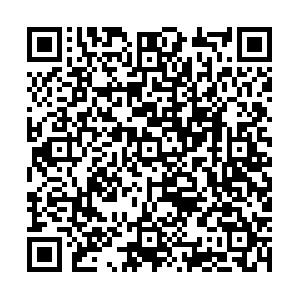On the Reasonable Construction of Children's View from the Three Transformations of Children's Views
-
摘要: 儿童观是人们对儿童的根本看法与态度,是社会建构的结果。合理的儿童观的建构既要考虑时代与社会的需要,也要注意到儿童的特性。从社会历史发展的宏观视角考察中国儿童观的三次转型:第一次转型是从古代的“成人本位”到清末的“国家本位”,第二次转型是从清末的“国家本位”到新文化运动时期的“儿童本位”,第三次转型是从新文化运动时期的“儿童本位”到南京国民政府时期的“政治本位”。在此基础上分析了儿童与成人、国家及政治的关系,认为儿童与成人是一种主体间的平等交往关系,儿童与国家是一种对等的权利义务关系,儿童与政治是一种自主的政治主体关系,合理的儿童观的建构应处理好这三对关系。Abstract: The children's view is the fundamental view and attitude of children, and it is the result of social construction. The construction of a reasonable children's view must not only consider the needs of the times and society, but also the characteristics of children. This paper examines the three transformations of Chinese children's views from the macroscopic perspective of social and historical development: the first transformation is from the ancient "adult standard" to the "national standard" in the late Qing Dynasty, the second transformation is from the "national standard" in the late Qing Dynasty to the "children's standard" in the period of the New Culture Movement, and the third transformation is from the "children's standard" in the period of the New Culture Movement to the "political standard" of the Nanjing National Government. On this basis, the relationship between children and adults, the state and politics is analyzed. It is believed that children and adults are an equal relationship between subjects, children and the state are equal rights and obligations, children and politics are independent political subjects, the construction of a reasonable children's view should handle these three pairs of relationships.
-
Key words:
- children's view /
- adult standard /
- national standard /
- children's standard /
- political standard
-
[1] 王海英. 20世纪中国儿童观研究的反思[J]. 华东师范大学学报(教育科学版),2008(2):16-24. [2] (宋)黎靖德. 朱子语类:第1册[M]. 王星贤点校. 北京:中华书局, 1994:124-125. [3] 王守仁. 传习录[M]. 长沙:岳麓书社, 2016:107. [4] 梁启超. 新民说[M]. 北京:商务印书馆,2016:3. [5] 陈学恂. 中国近代教育文选[M]. 北京:人民教育出版社, 2001:108. [6] 康有为. 大同书[M]. 北京:华夏出版社, 2002:248. [7] 梁启超. 梁启超论教育[M]. 北京:商务印书馆, 2017. [8] 梁启超. 梁启超论教育[M]. 陈漱渝, 宋娜选编. 福州:福建教育出版社, 2016:8. [9] 孙培青. 中国教育史[M]. 上海:华东师范大学出版社, 2000. [10] 杜说. 论平民主义与国家主义之废兴[J]. 东方杂志,1907,4(8):146-148. [11] 顾明远. 教育大辞典[M]. 增订合编本. 上海:上海教育出版社, 1998:713. [12] 胡适. 容忍与自由[M]. 北京:中国工人出版社, 2016:160. [13] 顾明远. 鲁迅教育文存[M]. 北京:人民教育出版社, 2017. [14] 董宝良. 陶行知教育论著选[M]. 北京:人民教育出版社, 2011. [15] 北京市教育科学研究所. 陈鹤琴教育文集(上卷)[M]. 北京:北京出版社, 1983:1. [16] 周作人. 儿童的文学[J]. 民国日报·觉悟,1920(10):2-3. [17] 韦悫. 国民政府教育方针草案[N]. 新闻报,1927-07-01. [18] 教育部教育年鉴编纂委员会. 第二次中国教育年鉴[M]. 商务印书馆, 1948:5-9. [19] 姚伟. 儿童观及其时代性转换[M]. 长春:东北师范大学出版社, 2007. [20] 项贤明. 泛教育论——广义教育学的初步探索[M]. 太原:山西教育出版社, 2002:6-7. [21] 亚里士多德. 政治学[M]. 吴寿彭,译. 北京:商务印书馆, 2009:7. -

 点击查看大图
点击查看大图
计量
- 文章访问数: 772
- HTML全文浏览量: 186
- PDF下载量: 334
- 被引次数: 0



 下载:
下载: